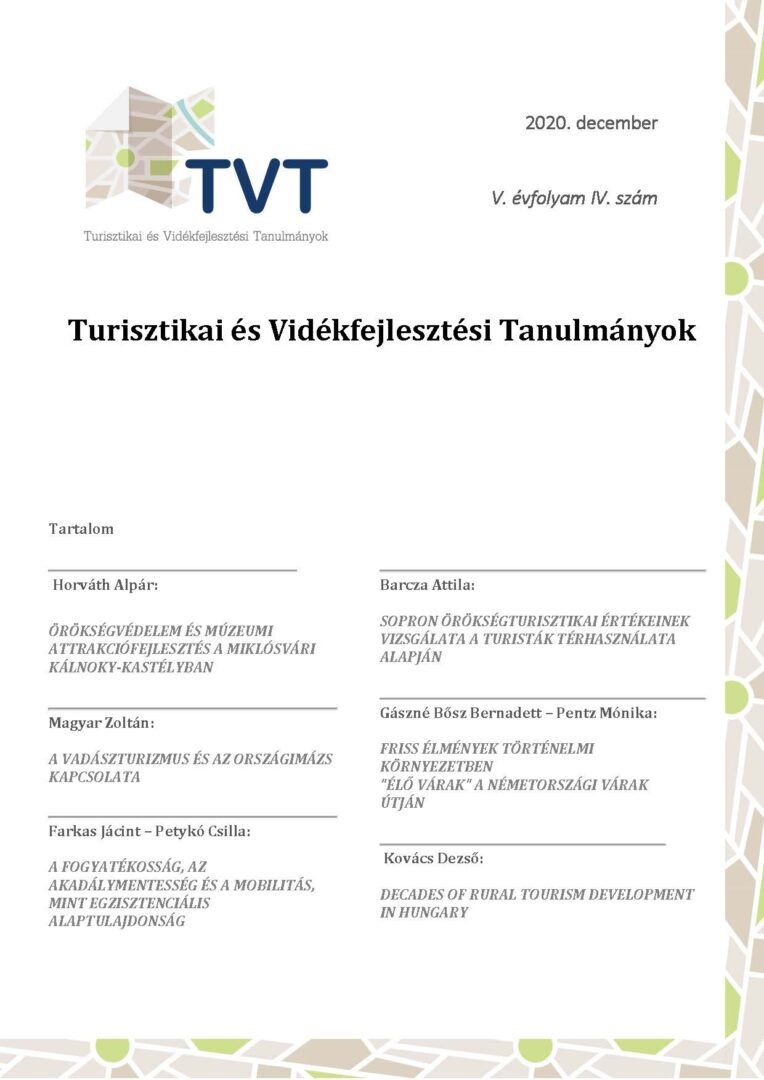A FOGYATÉKOSSÁG, AZ AKADÁLYMENTESSÉG ÉS A MOBILITÁS, MINT EGZISZTENCIÁLIS ALAPTULAJDONSÁG
Keywords:
existential disability, barrier-free access, adaptation, accessibility, tourism servicesAbstract
Our study is linked to the theoretical and practical aspirations of the science of tourism, which
seeks to map and create accessibility on both the demand side and the service provider side, it also
provides a brief insight into the primarily philosophical extension of the concepts of accessibility
and disability.
Therefore, we intend to outline, without claiming completeness, the contexts of “well-known”
concepts, in the light of the referring statements of prominent thinkers in life- and anthropological
philosophy as well as Buddhist philosophy on disability, accessibility, and adaptation, through
which participants in the world of travel can look at both the people involved and the services
offered from a broader perspective .
Our work can create the basis for a new type of adaptive approach in the revision and development
of tourism-related professional methods, which can be introduced in the near future.


